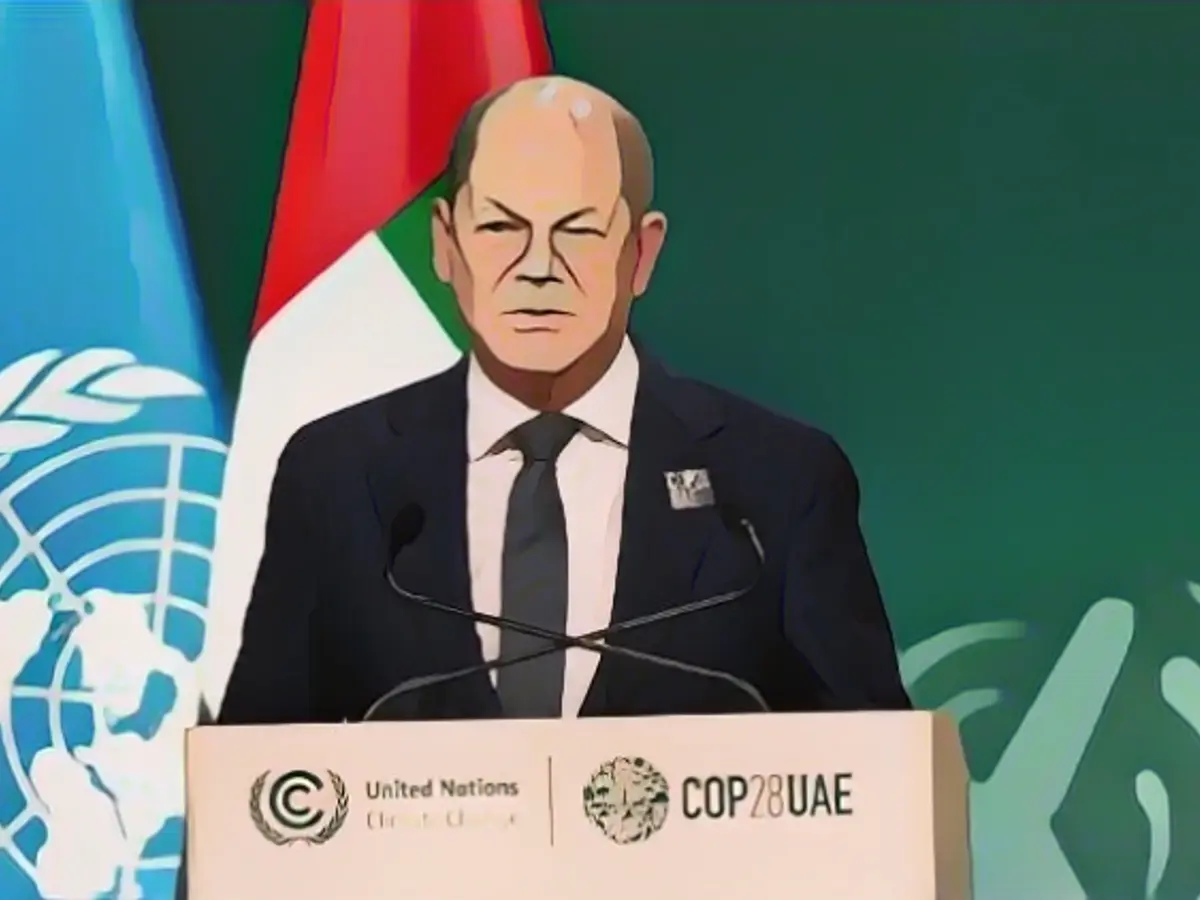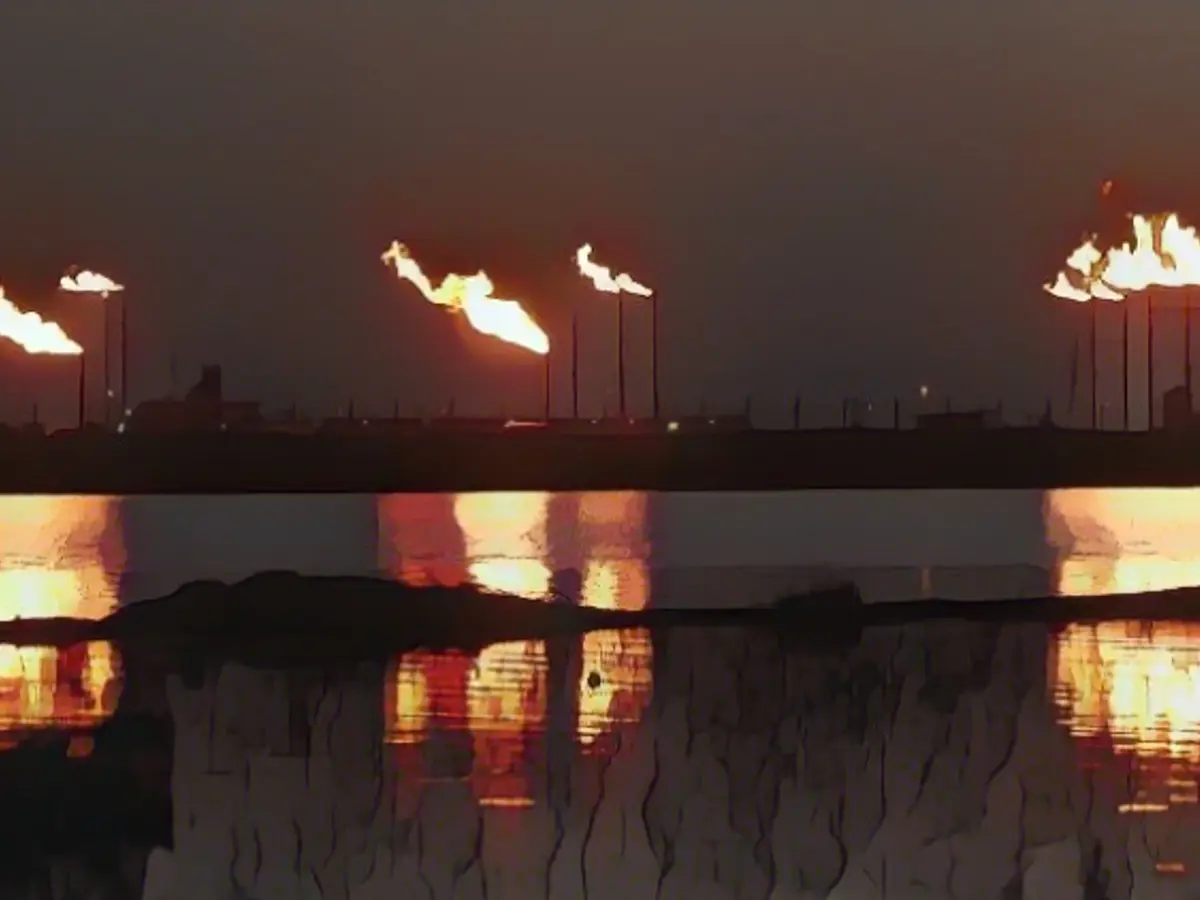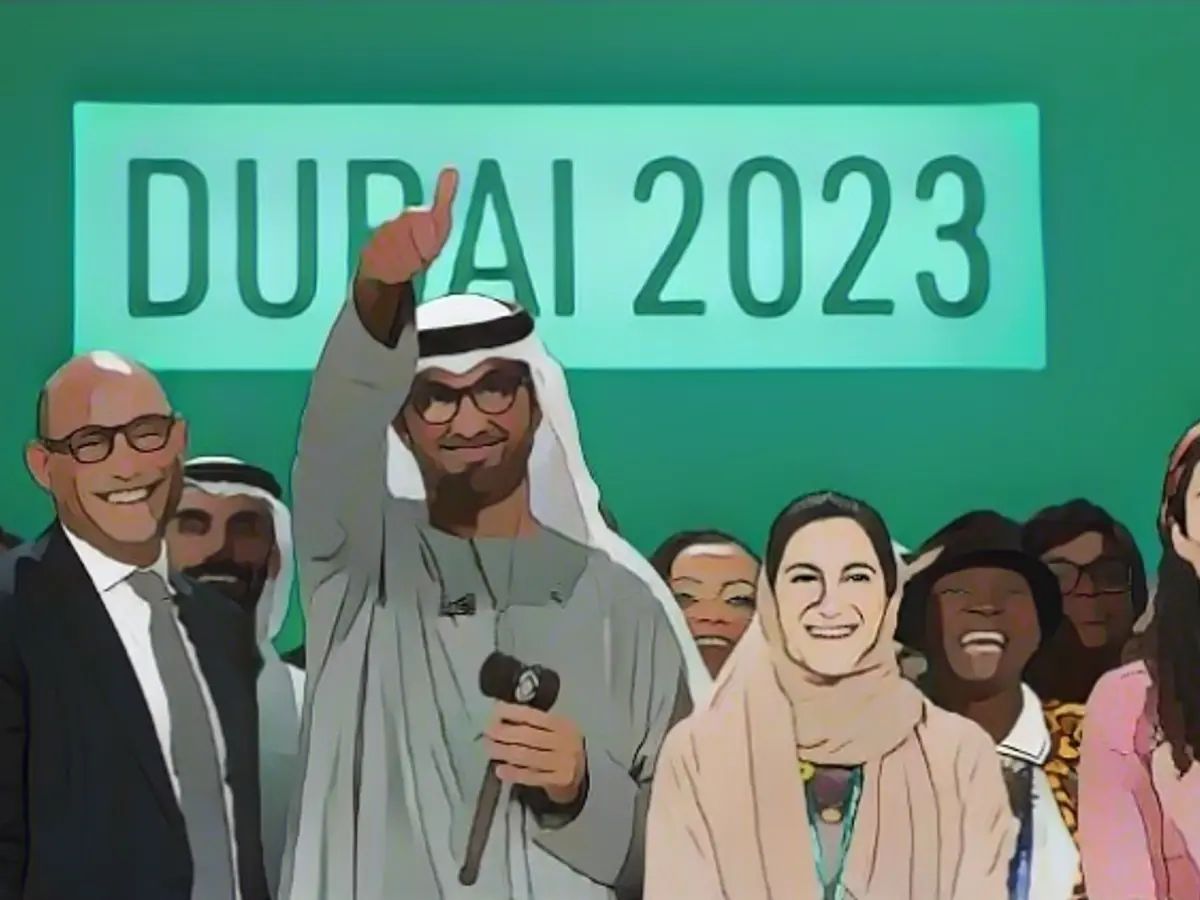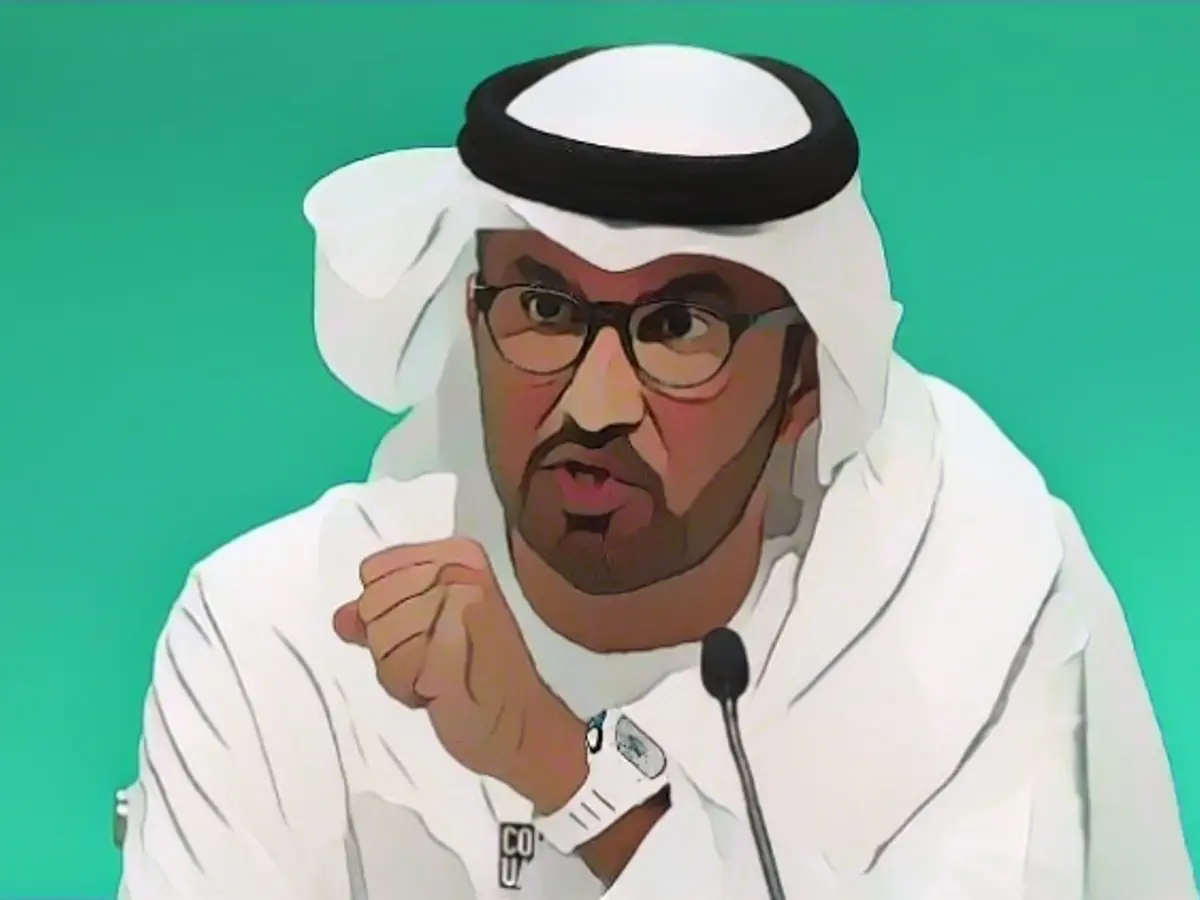In Dubai, Chancellor Scholz Pushes for Swift Renewable Energy Revolution
German Chancellor Olaf Scholz made a passionate plea at the World Climate Conference in Dubai, advocating for a surge in global renewable energy production. Despite progress in renewable energy, Scholz argued that we're moving too slowly, stressing the need to triple the world's renewable energy capacities by 2030.
Delivering an impassioned speech in Dubai, Scholz called for the immediate phase-out of coal, oil, and gas. "It's time for all of us to demonstrate commitment to phasing out fossil fuels, starting with coal. Let's embark on this journey at this climate conference," asserted the SPD politician. He emphasized that our commitment to the Paris Agreement's 1.5°C target to combat climate change is insufficient, as science advises we act swiftly – despite geopolitical complications, including conflicts in Gaza Strip and Ukraine.
Scholz reiterated that the necessary technologies to address this challenge already exist – wind power, solar power, electric vehicles, and green hydrogen. Germany is spearheading this transformation, aiming to operate as a climate-neutral nation by 2045.
Germany Drives Innovation
Scholz urged world leaders, including Dubai, to join the clean energy transition. He proposed binding targets appealing to the 196 attending countries: a threefold expansion of renewable energies and a twofold increase in energy efficiency, both by 2030.
Critics, such as climate expert Jan Kowalzig from Oxfam, lamented Scholz's proclamations as "rhetorically flawless but rousing is different." While Scholz effectively communicated the urgency of the situation, the German government's actions contradict his demand to phase out fossil fuels. Germany continues to invest in gas infrastructure and weaken climate protection regulations.
Keep Focused on Renewables
As Scholz emphasized during the conference, industrialized nations must actively collaborate on tripling renewable energy capacities by 2030, as pledged in Dubai.
Advancing Scholz's vision requires a multi-faceted approach. Prominent strategies include:
- Investment in Renewable Energy
- Government Funding: Allocate substantial funds for renewable energy projects, such as Dubai's $1.5 billion investment in the Mohammed bin Rashid Al Maktoum Solar Park.
- Private Sector Involvement: Encourage businesses to invest in renewable energy initiatives, paving the way for cleaner energy sources worldwide.
- Policy and Regulatory Support
- Renewable Energy Targets: Set ambitious targets to integrate renewable energy into the grid, such as Dubai's goal to generate 75% of its energy from cleaner sources by 2050.
- Favorable Renewable Energy Policies: Establish supportive regulations and incentives to encourage renewable energy developments.
- Technological Advancements
- Investment in Research and Development: Fund ongoing research to enhance renewable energy technology and cut costs, like improving solar panel efficiency and wind turbine design.
- Innovation Hubs: Foster the growth of innovation hubs, supporting the development of transformative renewable energy solutions.
- Grid Integration
- Smart Grid Systems: Develop smart grid technologies that efficiently integrate renewable energy sources into existing power infrastructures.
- Advanced Energy Storage Solutions: Implement energy storage innovations, such as battery storage systems, to stabilize energy supplies, circumventing the intermittency of renewable energy sources.
- International Cooperation
- Regional Power Trading Agreements: Engage in cross-border power trading agreements, forging alliances that enhance energy reliability and optimization.
- Collaboration on Clean Energy Projects: Join efforts with neighboring countries to launch shared renewable energy initiatives, promoting collective sustainability.
- Public Awareness and Education
- Educational Campaigns: Launch awareness campaigns, educating communitiess about the benefits of renewable energy and the necessity of decarbonization.
- Behavioral Changes: Staunchly encourage environmentally-friendly behavior, offering incentives and rewards for individuals and companies to adopt green energy solutions.
- Green Financing Mechanisms
- Green Bonds: Utilize green bonds to attract investments specifically to renewable energy projects, stimulating clean energy development.
- Carbon Pricing Mechanisms: Implement carbon-pricing mechanisms, such as carbon credits, to incentivize emissions reduction.
By adopting these strategies, countries like Dubai can contribute to the global push for renewable energy and make meaningful strides toward Scholz's 2030 renewable energy expansion goal.








